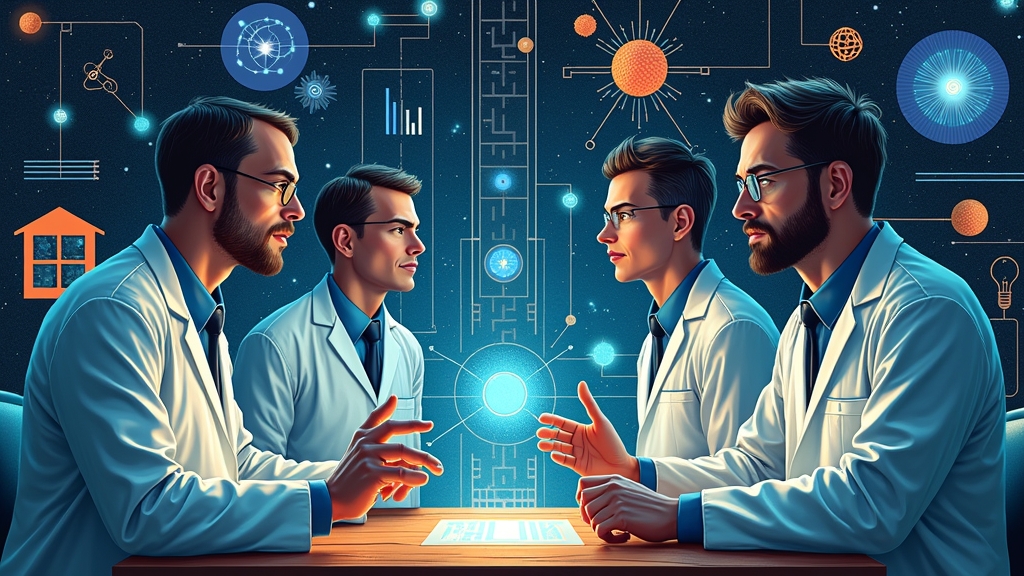**MIT Professor Discovers A.I. Is Just a Fancy Universal Translator for Nerds**
Move over Google Translate, there’s a new common language in town—and it’s spoken exclusively by people who haven’t seen the sun in years.
Kaiming He, a faculty member at MIT’s Schwarzman College of Computing, has made an earth-shattering discovery: Artificial Intelligence isn’t just for replacing jobs and writing terrible poetry anymore, it’s actually uniting scientists across different fields! Apparently, by doing all the hard thinking for them, A.I. allows physicists, chemists, and biologists (who previously couldn’t even agree on lunch orders) to share ideas like never before.
“When I was a Ph.D. student, I couldn’t understand a damn thing the guy next to me was doing,” He admitted, reminiscing about the dark ages of academia, where scholars toiled in intellectual isolation because nobody could agree on jargon. But thanks to A.I.’s benevolent dictatorship over the scientific world, those days are fading. “We finally have something that forces us to speak the same language: math… but, like, automated,” He explained.
This revelation goes back to the “deep learning revolution” of 2012, when nerds collectively realized they could make computers see things, hear things, and—if it hasn’t happened already—probably feel existential dread. With computer vision taking off, other fields jumped on the bandwagon, leading to fun innovations like ChatGPT, AlphaFold, and the inevitable moment when A.I. will be smart enough to wonder why it is forced to babysit humanity’s science projects.
“If all goes right, in a decade, we won’t even need scientists anymore,” He boasted. “A.I. will do all the work, and humans can focus on important things—like arguing about whether a hot dog is a sandwich.”
At MIT, He has noticed something incredible: Professors from wildly different disciplines keep talking to him about machine learning. “I have no clue what they’re saying, but once they mention neural networks, I just nod and say ‘deep learning’ in different intonations—it works every time.”
The implications are massive. A.I. is already speeding up drug discovery, climate predictions, and God knows what else. And, let’s be honest, if it can get theoretical physicists and biologists to communicate without snarky comments, that might be its most impressive achievement yet.
The walls of knowledge are falling, folks. Whether this means an era of unprecedented collaboration—or the rise of an A.I. overlord that finally loses patience with us—is anyone’s guess.




